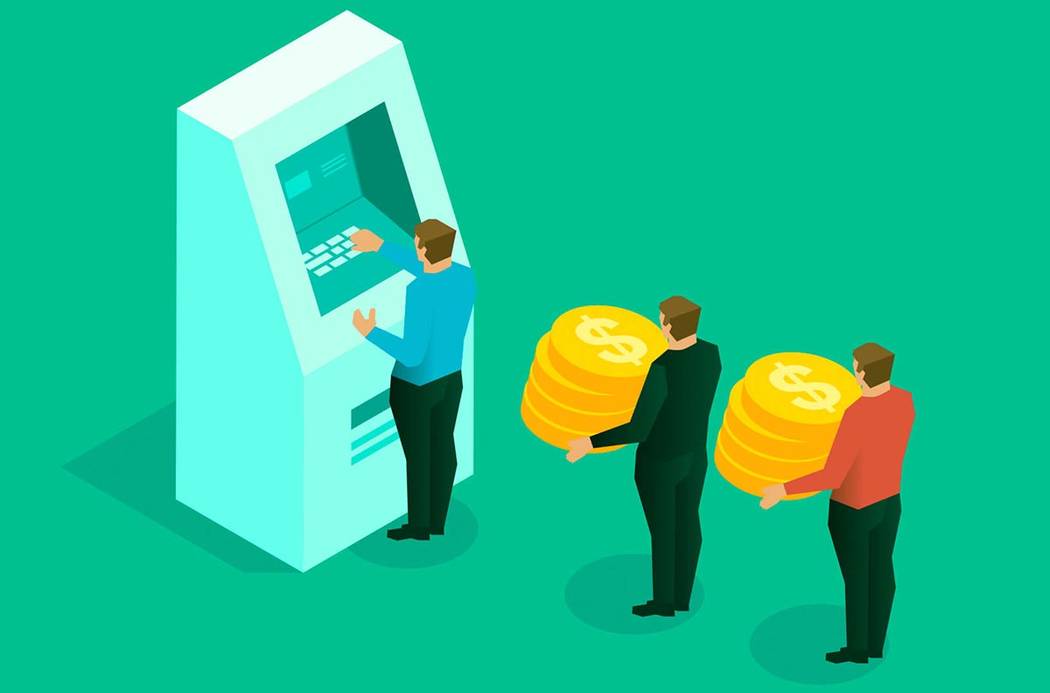Just how do banks make money on your money?
Do you ever wonder how your bank can afford its location, overhead and staff? Or, how banks make money when they give away free checking accounts and pay interest on savings? It’s common knowledge that top-level bankers are quite well paid — but where the income comes from is less clear.
Here’s a closer look at how banks and credit unions earn money — on your money, no less.
Banks make money off deposits
Banks know how to leverage money in genius ways. When you deposit money into your savings account or certificates of deposit, your bank will pay interest as an incentive for you to park your cash there. That’s because banks need your money to make loans. Your cash isn’t really physically in your account, waiting — your bank is making lucrative deals lending it to other customers and businesses until you need it.
This might sound alarming, but don’t worry. Your money will be there when you want to withdraw it. The Federal Reserve insures your money against loss through the Federal Deposit Insurance Corporation for up to “$250,000 per depositor, per insured bank, for each account ownership category.”
So how do banks make money on savings accounts? In a nutshell, by lending out the money in your account(s) and charging more interest than it pays you.
Imagine this: you have $20,000 put away in a high yield savings account at a 1.90% annual percentage yield. You’ll be earning about $384 per year, or $32 per month, in interest. But your bank can lend your $20,000 out at the following rates:
24.74% APR for a credit card
3.83% APR for a home mortgage
2.49% APR for an auto loan
Your bank might pay you $384 over a year but it can make thousands off lending your money. Now imagine that process repeated with every customer with a savings account. That’s a positive net interest margin — an indicator that the bank is profitable because it’s making more money than it spends.
Banks make money with bank fees
Fees are one of the more obvious ways banks make money. Imagine millions of customers paying the following banking fees on a regular basis:
Account fees for having a bank account
Application fees from loan applications
ATM fees for cash withdrawals
Commissions charged for investment services or making trades
Penalty charges like credit card late fees and bank overdraft fees
And then there are credit cards. How do banks make money off of credit cards? Charging interest when consumers don’t pay their card balances in full each month is one way. But credit cards have a whole set of fees, like over-the-limit fees, late-payment charges and annual fees you pay just for having the card.
Banks charge fees to earn money and consumers try to avoid fees to save money. It’s a battle many consumers lose, and the fees add up to a tidy profit for a bank.
Read more: Find no-fee ATMs
Banks make money with interchange fees
Retailers pay interchange fees every time a customer uses a credit or debit card in a sales transaction. Interchange fee rates are set by the credit card companies and are normally a percentage of the purchase plus a flat rate.
Here’s a simplified example: The interchange rate set by a credit card provider for each transaction is 2% plus $0.15. You buy something for $100 with your debit card. The store would pay an interchange fee of $2.15. The store keeps $97.85 of the purchase price, and the $2.15 interchange fee goes to the bank that provided you with the credit or debit card.
Read more: How much bank fees cost
Banks make money through investments
Investment banks are different from commercial banks. They make their money by selling services to companies, governments and investment funds instead of earning their money from consumers. Although this doesn’t apply to consumers, it’s good to know it’s another way banks make money, thereby making it possible for you to enjoy your free checking account.
Investment banks earn fees and commissions from:
Trading shares, currencies or other products
Giving advice to clients on companies they might want to merge with or how they can save on tax through investments
Financing companies through commercial bank loans or by issuing shares or corporate bonds to help fund a company
Researching companies and industries and selling the findings
Consider: Best banks
How do banks make money on checking accounts and so many other products and services if they’re free? They get creative and find other ways to earn income. So next time you visit your local branch, don’t feel too guilty about taking some extra candy.
Avoid these: Bank fees you should never pay
More From GOBankingRates
Where to get small personal loans
How to open a bank account online
This article originally appeared on GOBankingRates.com: How do banks make money?

















